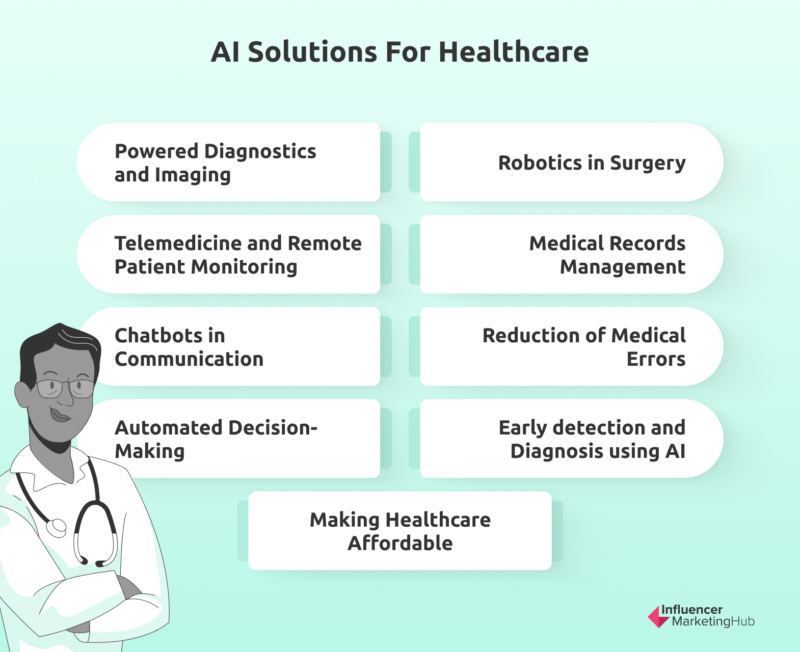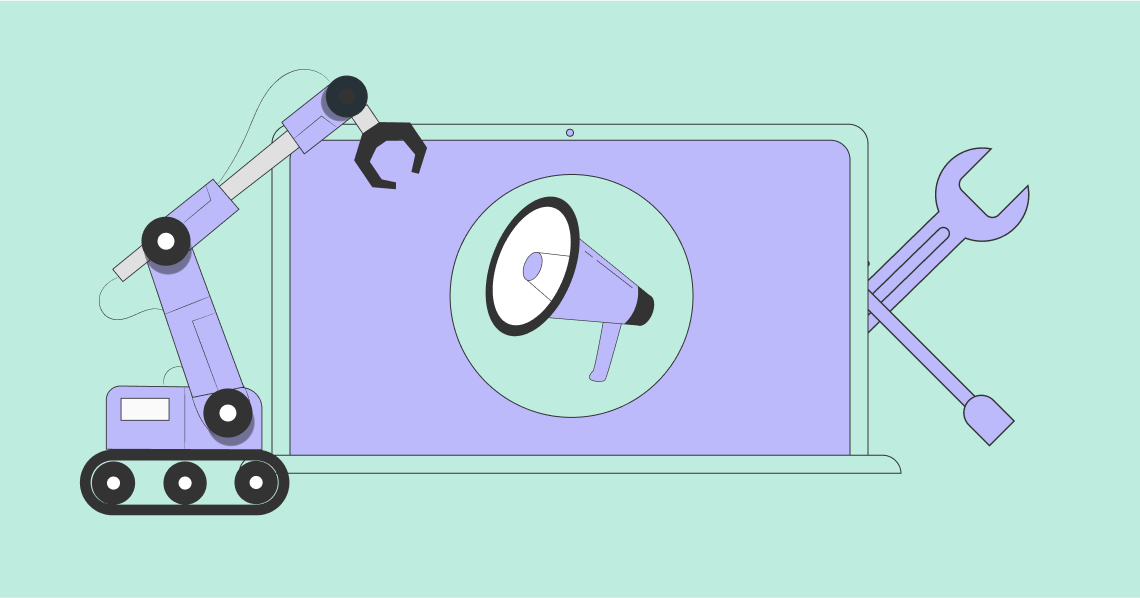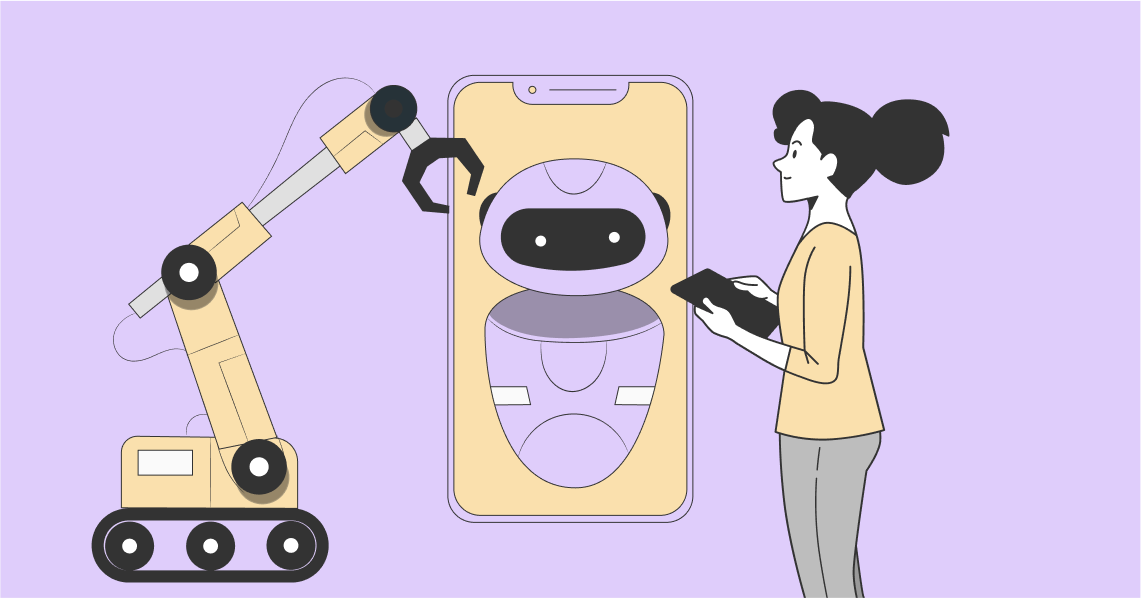Advertising disclosure:
Our partners compensate us. This may influence which products or services we review (also where and how those products appear on the site), this in no way affects our recommendations or the advice we offer. Our reviews are based on years of experience and countless hours of research. Our partners cannot pay us to guarantee favorable reviews of their products or services.
Artificial intelligence (AI) has a lot of applications in our daily lives, and the healthcare industry is no exception. As hospitals continue to be overloaded with patients, AI tools can help healthcare providers make more informed decisions and provide better care. This kind of technology is being extensively used in hospitals and clinics to optimize patient care and reduce medical errors.
AI-powered healthcare tools are making a significant impact on clinical workflows, patient satisfaction, and clinical outcomes. In this article, we’ll tell you about the AI-powered healthcare tools commonly used in hospitals and clinics today. We will also discuss artificial intelligence in healthcare and its applications that are revolutionizing the industry.
5 AI Healthcare Tools Revolutionizing Healthcare in Hospitals and Clinics:
Merative, formerly known as IBM Watson Health, can help medical professionals make better decisions, automate daily tasks and empower them to do their most productive work. It is a platform that uses AI in the cloud to store, manage, and analyze medical data in real time. With the help of this technology, doctors can access patient records more quickly and accurately diagnose patients with a significantly higher level of accuracy. Using its flexible analytics capabilities, health plans can integrate the system with their existing one and provide them with the analytics capabilities they need to meet stakeholder needs. The use of AI algorithms can help identify meaningful trends in health at an early stage. For example, a radiologist could be able to improve their decisions without disrupting their workflow. In a similar manner, oncologists can increase the accuracy and efficiency of cancer diagnostics by using advanced technology. A comprehensive electronic health record system as well as treatment plans that are tailored to the individual needs of cancer patients will be made available to them. Having access to real-time data about a patient can help a physician determine the right course of action to take in case they are worried about their health. With the help of AI, Viz.ai is able to replace outdated, conventional care practices with the use of one convenient platform. This cloud-based patient record management system allows healthcare professionals and patients alike to access and share information more quickly and effectively. When care teams are connected earlier in the workflow with real-time analytics and insights, faster treatment decisions can be made, which leads to better outcomes for the patient. The Viz.AI platform offers a wide range of features to help healthcare professionals run their operations more efficiently and accurately. Furthermore, it provides alerts when a patient encounters a medical problem or takes medication, which can allow healthcare providers to take the appropriate action quickly. Overall, Viz.ai is a useful tool that can help healthcare professionals manage their patients’ records efficiently and accurately. Enlitic is a healthcare intelligence platform that uses AI to improve the accuracy of health data. Its solutions include Enlitic Curie™, an AI-powered platform designed to enhance patient care through precision diagnosis and clinical decision support. This system can help identify early signs of health conditions, improve treatment decisions, and provide a more accurate view of a patient’s overall health. Enlitic Curie™ also aims to make data-driven care more accessible by providing patients with access to their entire medical record in a secure online environment. The platform has already been used in conjunction with radiology scans and AI technology is being developed for use with other types of medical data as well. Enlitic also offers Curie|ENDEX™, an AI-driven application that lets you transform big data into relevant insights that can help you make more accurate, strategic, and timely decisions. With the help of this application, workflows are improved with automation and better data accuracy. AI algorithms can detect anomalies in health records and alert healthcare professionals so they can take the necessary steps to improve patient conditions. Additionally, Curie|ENDEX™ helps healthcare providers understand how different treatment options interact with one another and how they affect a patient’s health. Providers are now able to provide the finest care possible with Regard—a comprehensive intelligent platform that automates tedious clinical tasks, allowing providers more time for their patients. Unlike manual methods of analyzing and synthesizing patient data, this system provides near-instantaneous insights into complete patient pictures without missing any critical information. As a tool, Regard is a machine learning algorithm that uses natural language processing to automatically analyze patient data in medical records and clinical notes. It provides insights into patient diagnoses, treatments, care plans, and outcomes with AI algorithms. Whether you are a medical leader, administrator, or healthcare provider dealing with rare diseases, cancer diagnoses, or chronic diseases, Regard can help you take on the challenges of healthcare administration with ease. Every use case of intelligence and automation can free providers up to provide more time for the patients they care about. Twill is revolutionizing healthcare by intertwining mental and physical health with digital-first care. Therapeutic, well-being, and community-based apps and tools are solutions that help bridge the gap between need and treatment. With carefully constructed strategies and programs that exceed in empowering individuals to take control of their health and well-being, it is redefining how healthcare is delivered. Through machine learning and natural language processing or NLP, Twill can identify and recognize patterns in mental health conversations. This use of AI helps clinicians and other medical professionals understand their patients’ needs faster, allowing for better treatment plans. Additionally, it leverages AI to track patient progress over time and provide a more complete picture of the individual’s medical information and mental health journey. Together with Taylor, the app’s therapeutic assistant, this information can be used to personalize care plans and recommendations for further treatment. Twill has a growing community of healthcare professionals who are using their technology to improve patient outcomes. With the rapidly growing industry of healthcare, there is no doubt that it will play a big role in reshaping how we view mental health and healthcare in general.1. Merative (Formerly IBM Watson Health)
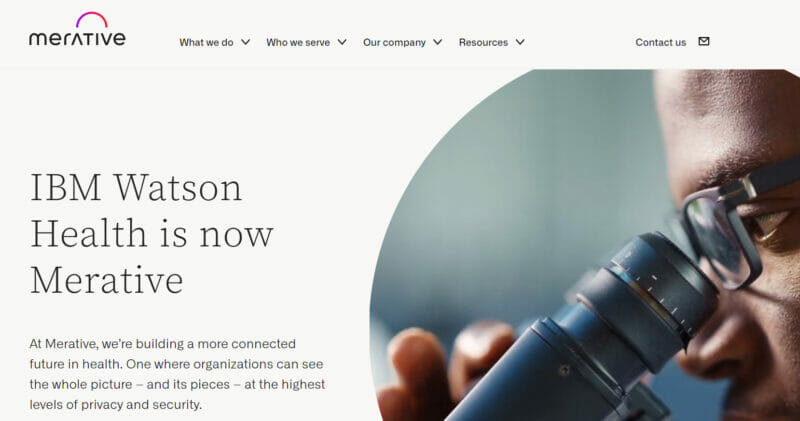
2. Viz.ai
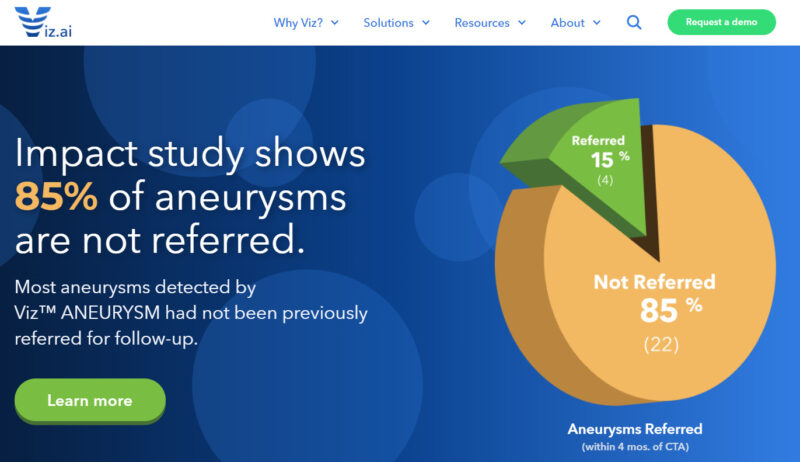
3. Enlitic
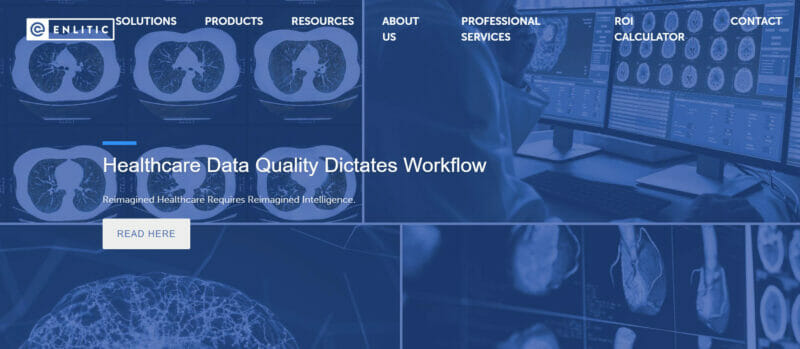
4. Regard
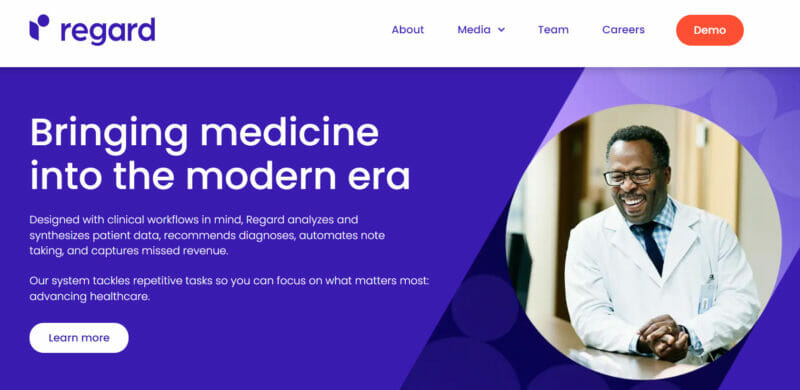
5. Twill
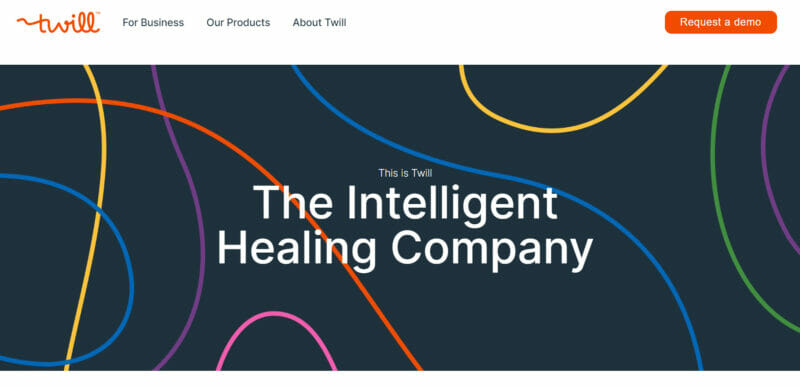
What is Artificial Intelligence?
AI technology allows computers to learn and make decisions for themselves. AI has revolutionized healthcare by helping doctors diagnose and treat patients more accurately. For example, medical imaging or radiology can be analyzed using AI, which can help doctors detect abnormalities in a patient's body more quickly and with less human input. This also helps hospitals and clinics manage their resources more efficiently, avoiding duplicate tests or scans.
Additionally, AI is being used to assist physicians during routine tasks like reading a patient's health history or writing a prescription. Together with a customer data platform, this technology is also helping to improve the way patients communicate with their physicians.
With artificial intelligence, patients no longer rely solely on their doctor’s opinion of a diagnosis or treatment plan, as the machine can offer a third-party perspective on the situation. This can lead to a better understanding between the patient and doctor and ultimately a better outcome for both parties.
The Different Solutions of AI in Healthcare
Technology is changing how healthcare is delivered and managed. From telemedicine to machine learning, AI technology is powering the next generation of healthcare solutions. Here are the different solutions and ways AI is being used in healthcare:
Powered Diagnostics and Imaging
AI algorithms can quickly detect abnormalities in images that may have previously remained unnoticed, drastically improving accuracy. AI-powered diagnostics are being used to assist radiologists with interpreting scans such as mammograms, X-rays, and CT scans. With deep learning and AI, these scans can be more quickly and accurately diagnosed. Physicians can also use AI to sift through radiology reports for potential health risks, all while a patient is in the waiting room.
Robotics in Surgery
In recent years, robots have been increasingly used in surgeries due to their rapid yet precise movements. As clinical trials continue to demonstrate the safety and efficacy of utilizing robots in surgery and other medical procedures, AI is being applied to further enhance their capabilities. For example, a machine learning algorithm can be employed to identify surgical landmarks as a surgeon performs an operation. This assists in improving patient outcomes by reducing errors and providing more accurate diagnoses during operations.
Telemedicine and Remote Patient Monitoring
Remote patient monitoring through AI is a growing trend in healthcare. By using AI to monitor patients remotely, healthcare providers can provide care for patients from their own homes or offices. Consider virtual meetings that can reduce clinic visits, shorten wait times, and improve access to care. This allows them to spend more time with patients and reduces transportation costs for medical appointments.
Medical Records Management
Medical records are a key component of healthcare. It can be very time-consuming to compile and manage these records manually. With AI, medical records can be automatically organized and sorted via machine learning algorithms. This helps providers better track patient care and reduces the time they need to spend on record-keeping tasks.
With the use of AI to manage medical records, providers can reduce the time needed to find and retrieve information. This will help improve patient care through faster diagnosis and more timely treatment. These organizations use data analytics to analyze patient records and uncover information that can help them treat a patient's health more effectively.
Chatbots in Communication
Chatbots are a type of AI software that can engage users through chat rooms or other messaging services. They are used to provide customer service, information, and entertainment, or to help people connect with businesses. In healthcare, chatbot applications of AI can be applied for a variety of purposes such as patient care coordination and data entry. As natural language processing algorithms are used, they are able to understand complex questions and respond quickly. This allows providers to keep patients more informed while they wait for appointments or receive medical treatment.
Reduction of Medical Errors
Automated AI systems can automatically detect and correct errors in patient records. This technology can help to reduce medical errors, such as misdiagnosis or treatment that is ineffective or harmful. In addition to identifying and correcting data entry errors, AI systems can also assist doctors in making more informed decisions about treatment options. By using a machine learning algorithm, AI can analyze a patient's medical records and suggest a treatment plan based on a deep understanding of the patient's health history.
Automated Decision-Making
AI can help healthcare providers identify potential problems early and recommend the most appropriate course of action. For example, AI can be used to recommend a treatment or medication that is most likely to work best for a patient at a more accurate and faster pace. By using this in healthcare, hospitals and clinics can improve patient care while reducing costs. With AI-powered health records, patients can track their progress and communicate with their healthcare providers more effectively.
Early detection and Diagnosis using AI
AI can help hospitals and clinics to identify and diagnose diseases earlier, which allows for more effective treatment. By using AI to analyze patient data and make accurate diagnoses, healthcare providers are able to provide patients with the most effective care possible. AI can also help improve patient care by providing information on the appropriate treatments for each individual. By using AI, healthcare professionals can tailor treatment plans to a patient's unique medical needs with predictive analytics.
Making Healthcare Affordable
Whether or not a patient is at the early stage of a disease, AI can help healthcare providers to save money on treatments and medications. It can automatically identify which patients are likely to respond well to a particular treatment or medication. This information can be used by healthcare professionals in order to make treatment recommendations that are most cost-effective for the patient. In addition, AI-powered health records allow patients quick access to their health information and data so they can track their progress and better communicate with their healthcare providers.
AI Penetrating the Healthcare Industry
The healthcare system is one of the most complex and data-rich environments in which artificial intelligence can be used. By using machine learning algorithms, AI can help healthcare providers to identify patterns and trends in patient data that may not be evident using traditional methods.
This deep understanding of patients' health histories allows healthcare professionals to make more informed decisions for more accurate treatment options. In addition, AI can improve patient care by helping providers to holistically understand a patient's preferences and habits. Finally, AI technology provides a new level of transparency for patients by providing an automated record of their medical history.
Frequently Asked Questions
How is AI used in healthcare examples?
Artificial intelligence tools in healthcare can help fix links between genetic codes, power surgical robots and maximize hospital efficiency.
Who is leading AI in healthcare?
The 5 top AI healthcare companies include:
- Merative (Formerly IBM Watson Health)
- Viz.ai
- Enlitic
- Regard
- Twill
How does AI help in healthcare?
AI can help in healthcare by better automating administrative tasks like pre-authorizing insurance, following up with unpaid bills and better maintaining records. AI in healthcare can help ease the workload of healthcare professionals and save money in the long term.
What are the four uses of AI in healthcare?
AI algorithms ensure systems are more precise and help people better understand training data, which further helps workers get unprecedented insights into treatment options, care processes, diagnostics and patient results.
